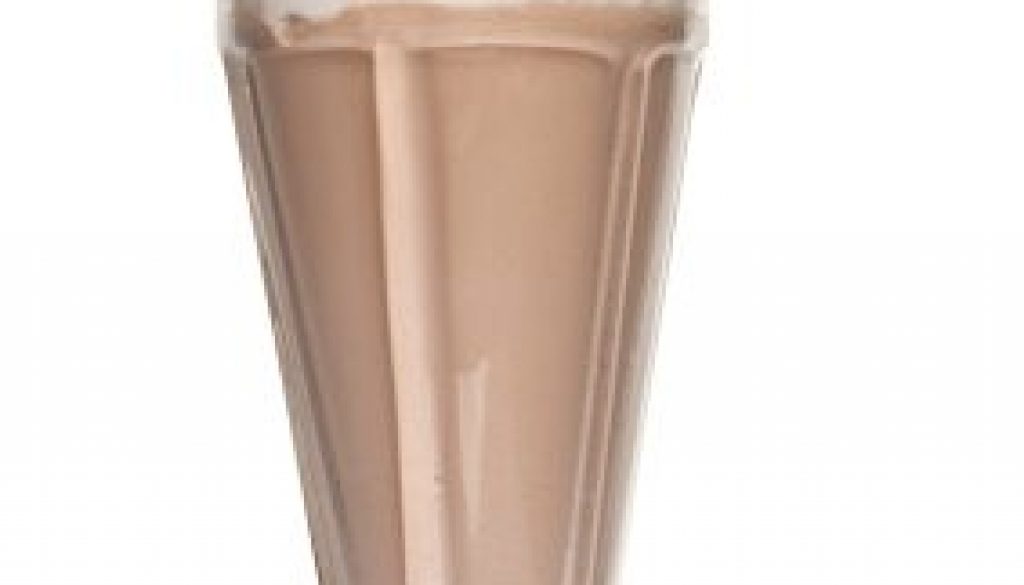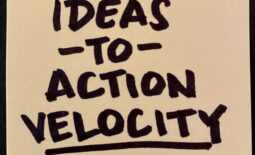The Disintermediation Uber Straw
Have you seen the movie starring Daniel Day-Lewis called “There Will Be Blood“? It’s an incredible film with lots of great actors in winning performances. Even if you’ve seen it before, the movie is worth a second look, if only for the infamous “I drink your milkshake” scene.
Spoilers here, so if you haven’t seen it — stop reading and go watch the movie!
Earlier in the film Day-Lewis’ character Daniel Plainview had attempted to purchase a piece of property on which he wished to drill for oil. He had virtually all the land surrounding it, but couldn’t close the deal on that particular piece of land because the primary antagonist, Eli Sunday, had plans of his own.
At a key point in the movie Eli tries to sell the property to Daniel Plainview, but the oilman has outfoxed him and has a trump card to play of his own…
When I originally saw this dramatic scene, I laughed.
Not because there is anything particularly humorous about it (it’s an incredibly dark scene), but because there are start-up companies and creative individuals drinking the milkshakes of every established industry out there, and this brilliant piece of writing gave me a pop culture way to dramatically illustrate the point to others.
A lot of the best examples (sadly) concern the Music industry. For some strange reason these poor bastards just can’t seem to get it through their heads that their business model has changed (at least for all of their consumers and for all of their competitors — even if it hasn’t convinced them to change for themselves.)
Some other obvious examples…
- iTunes, Pandora, Spotify, YouTube, etc., etc. vs. Music Industry
- Amazon vs. Bookstores, Electronics stores, etc.
- Netflix vs. Blockbuster, Cable, etc.
- Hulu vs. Network Television, Cable
- Roku vs. Cable
- Google Chrome vs. Roku
But let’s not just pick on the Media industry (it’s too easy).
 Disintermediation — a terrible name for the crux of the milkshake-drinking phenomenon — is all about removing the middleman and going direct to a source. Kickstarter.com allows creators at every level to access fans and funding directly. PayPal and Square allow anyone to take credit cards and other forms of payment without the middle man of storefronts and monthly merchant charges. And the latest and greatest (despite their recent appalling lack of media PR savvy) is Uber. They have almost single-handedly upset the taxi and limousine category.
Disintermediation — a terrible name for the crux of the milkshake-drinking phenomenon — is all about removing the middleman and going direct to a source. Kickstarter.com allows creators at every level to access fans and funding directly. PayPal and Square allow anyone to take credit cards and other forms of payment without the middle man of storefronts and monthly merchant charges. And the latest and greatest (despite their recent appalling lack of media PR savvy) is Uber. They have almost single-handedly upset the taxi and limousine category.
The public maybe swinging to and fro on whether they think the company is misbehaving right now or not, but what Uber accomplished won’t go away anytime soon (even if their board of directors does). Keep in mind that the original Napster may no longer be around, but they are the ones who let the music-sharing genii out of the bottle and it’s NEVER going back in.
The biggest problem is that even after all of these examples (and many, many, more I could list) people are still surprised when it happens in their industry or category. A couple weeks ago I was giving a presentation to an association of independent cosmetologist and barbers. I was relating many of the examples above and ended (seemingly) with the Uber reference, showing photos of taxi drivers picketing in front of state buildings against ride sharing services like Uber. Everyone in the audience agreed on the benefits Uber brought over traditional cab services. More than half of the audience has used these services and recommended them to others. They all agreed that it was futile to fight against the change that came to all of these industry examples I had provided.
And then I dropped a brain-bomb on them and asked if they’d heard about a new service that had just launched in New York called ShortCut — it’s basically Uber for haircuts.
I had not anticipated the reaction this audience would have to the news…
First there was a slight pause and moment of calm-before-the-storm has they took in my words and looked at the screenshot of the ShortCut app I had projected on the wall, and then, like a gargantuan tidal wave rising up out of the ocean and crashing onto an unsuspecting coastal village,the group began to voice their concern and objections all out loud and all at once. Woah!
It was like the last 15-minutes of our discussion hadn’t taken place at all. Every voice was expressing the idea that this type of service couldn’t work, it would never get legal or industry licensing, it might work in NYC but not in their own cities, etc. Granted, they were all taken by surprise (isn’t that part of the problem we just reviewed with every industry?) but the initial reaction was not one of “how do we combat this development?” or “how do we use this technology to our own advantage?” — it was all denial and fear of change. I reminded the group that they were having the exact same reaction as the cab drivers. Like Uber, ShortCut might not have licensing in their cities now, but Uber had changed all that and it was even more likely now that ShortCut would succeed because there was a precedent.
How to protect your milkshake
The best thing you can do for yourself (and your industry), is assume this kind of disintermediation WILL happen (probably sooner than you think) and brainstorm weekly on what you could do competitively if someone started sending an Uber-straw in the direction of your business and targeted to your customers. If your biggest competitor launched one of these apps tomorrow, you’d certainly have to fight for your business, so why not develop a strategy now?
Better yet, why not launch the Uber-style business yourself?
In the meantime, you might want to print out the image below and hang it near your desk as a reminder to watch out for Uber Straws.




